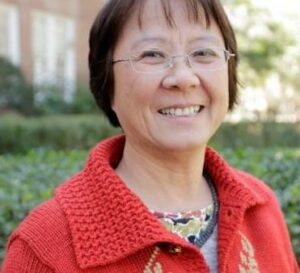Research Spotlight: Danling Fu
Q & A with Danling Fu, Ph.D., Professor in the School of Teaching and Learning
What basic questions does your research seek to answer?
Currently I have two research projects I have been working on (1) Comparative studies of K-12 Literacy Instruction between the US and China, and (2) Translanguaging pedagogical model and Emergent Bilinguals in the US.
The research question for the first study:
How do the practices of literacy instruction in the US and China reflect their respective cultural and literacy traditions?
The research question for the second study:
How does “translanguaging pedagogical model” prepare emergent bilingual students to meet the literary demands of the 21st century globalize world?
What makes your work interesting?
My comparative study suggests a shift of research on literacy instruction at K-12 level in the US towards a more global perspective, which is part of an ethical and democratic imperative that furthers a conversation among researchers and educators across the globe about literary traditions, pedagogy, and practice and indicates “two divergent systems may use each other as a mirror to reflect up their own perspectives and practices” (Ma, 2014, p. 5).
My second study challenges the conventional monolingual perspective in second language acquisition and transitional bilingual education, and advocates translanguaging, a pedagogical model that values all language varieties in a learner’s repertoire, leveraged as resources that can be used to facilitate communication and learning and has the capacity to meet needs of emergent bilinguals for the 21st century globalized world.
What are you currently working on?
For the first study, with my co-author in China, we have published 15 articles on the comparative studies of writing instruction (2015-2016) and we have just completed and submitted our book manuscript contracted with Shanghai Education Press (in press 2017). Now we are moving into our second phase: comparative studies of reading instruction between the US and China. Three secondary English teachers at PK Yonge Developmental Research School have joined my research team as the second phase of this study will include practitioners’ perspective and voice.
For the second study, in collaboration with two colleagues at Pennsylvania State University and University of Georgia, we have been working on a book proposal titled Literacy and Education for Emergent Bilinguals in the 21st Century: Reality, Challenges and Directions for the Future, commissioned with Teachers College Press, and we are at the revised and resubmission stage.






